![]() — หน้าแรก — เกาะติดข่าว
— หน้าแรก — เกาะติดข่าว
ข่าวเศรษฐกิจและธุรกิจประจำสัปดาห์
-

Myanmar High Society Co (MHS) seeks the opportunities to expand in the global arena with professional software and innovation solutions developed by local technicians
Though most ICT companies in Myanmar focus on the domestic market only, the woman-led Myanmar High Society Co (MHS) seeks to further expand in the global arena with professional software and innovation solutions developed by local technicians, according to Cho Zin Wint, the firm’s founder and chief executive. In an exclusive interview with The Nation, she said MHS has been serving around 40 clients, of which 90 per cent are overseas companies. She foresees many more foreign clients in the months to come. “Our core business is software outsourcing. In the past few months, we have witnessed a surging demand for our products from potential clients in the United States, Japan and Singapore,” she said. “This year, we plan to tap further into the huge potential of the Japanese market. Our first priority is to ensure our products meet the needs of our corporate clients, both local and international. Otherwise, it will be hard to compete overseas.” -
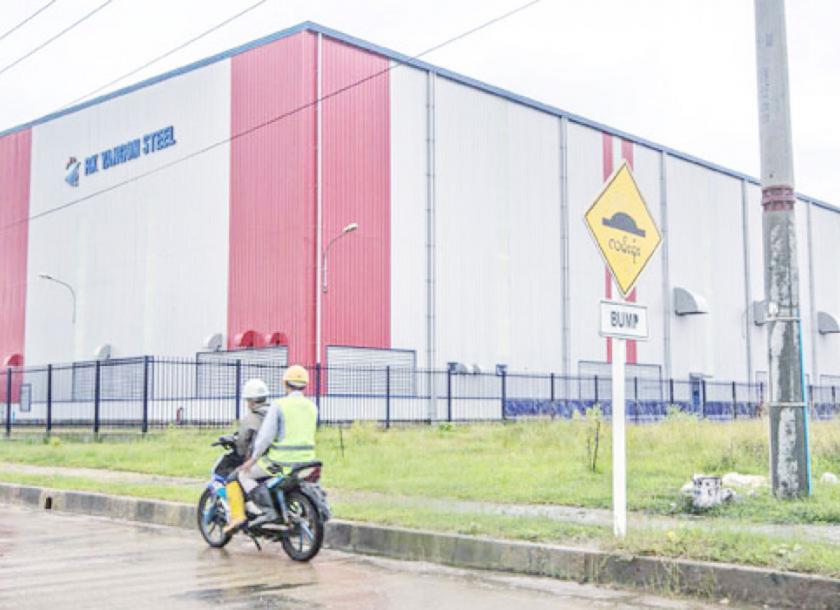
With the support of the DaNa Facility, a UK aid, the Customs Department under Ministry of Planning and Finance will set the development Custom Bonded Warehouse programme to provide boost to Myanmar industries
The Customs Department, Ministry of Planning and Finance, and the DaNa Facility, a UK aid funded programme, yesterday launched the Developing Custom Bonded Warehouse programme to introduce customs officers and relevant stakeholders to the potential of a bonded warehouse system in supporting the local industry. Bonded warehouses are specifically designed to support industry, particularly those which import high value and/or high import duty goods. Through bonded warehouses, these sectors will have the ability to defer their import duties and taxes until they themselves find customers willing to buy the goods or identify export markets. This implies that they can improve productivity and better manage their cash flows. The system allows for exported finished goods to be more competitively priced in regional and global markets as export pricing does not include embedded duty and tax charges. Examples are found in the garment exporting countries, where shorter lead-time is a competitive factor. -
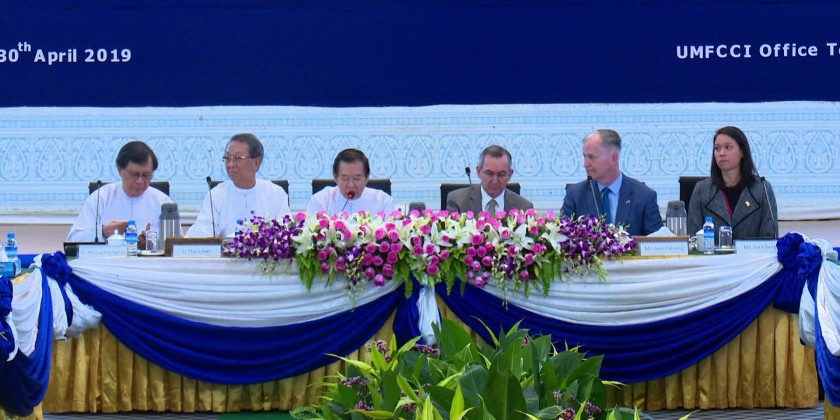
U.S trade mission which included 12 big companies visited Myanmar to learn the trade and investment laws and business opportunities in Myanmar
A U.S Trade Mission which includes 12 big companies visits Myanmar to seek investment opportunities. On Tuesday, a business meeting between the Republic of the Union of Myanmar Federation of Chambers of Commerce & Industry (UMFCCI) and U.S Trade Mission took place, in order to understand about the business climate in Myanmar. U.S Trade Mission discussed about the matters related to the trade and investment laws in Myanmar and business opportunities. As Myanmar is reforming its economy and also Myanmar’s frontier market offers significant first mover advantages, U.S firms are willing to enter. -

NETs Group signed a Memorandum of Understanding (MOU) with Myanmar’s National Payment Network to establish a Payment Technology Exchange & Development Programme in Myanmar
The NETS Group has announced that it has signed a Memorandum of Understanding (MOU) with Myanmar’s national payment network to establish a Payment Technology Exchange & Development Programme Finextra reported. The first project under the Programme will see NETS sharing its technical and operational knowledge around the Singapore Quick Response (SGQR) Central Repository platform with MPU with a view to implementing a similar platform in Myanmar. -
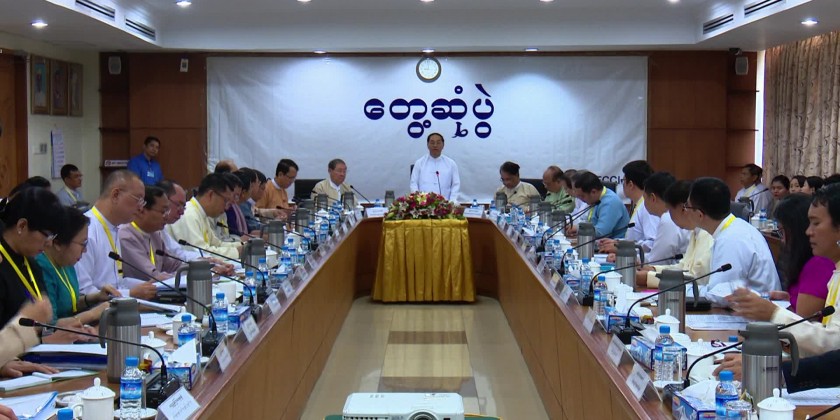
The 26th regular meeting of private sector development committee was held in Yangon to make more efforts for the growth of private sector
There are 84% of private sector involvement in trade volume of 2018-2019 fiscal year until the 12th of April, said Vice President at the 26th regular meeting of private sector development committee in Yangon on Saturday. Trade volume has reached 18.692 billion during the budget period of 2018 to 12th of April 2019. As of the same period, 0.321 billion exceed in trade. Out of them, trade volume of private sector was 15.662 billion. Chairman of the Committee Vice President U Myint Swe highlighted the efforts to be made for the growth of private sector. -
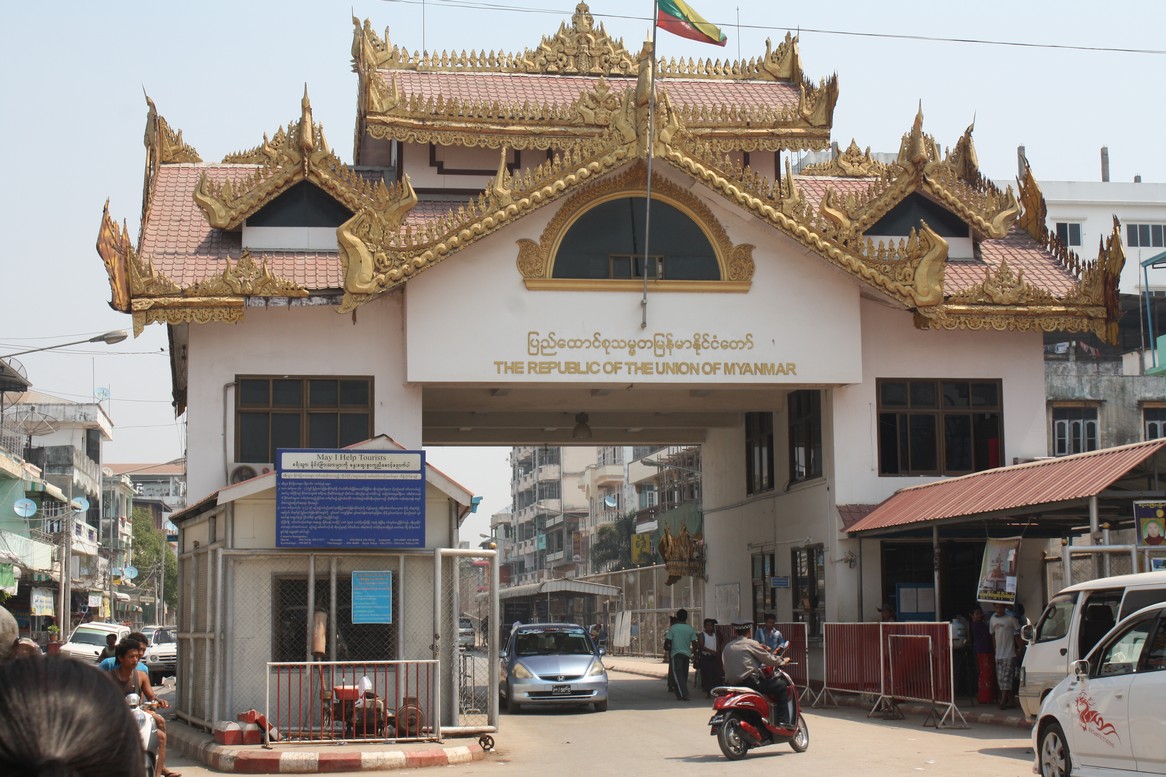
The border trade volume at Myawaddy border camp for this year is much lower than the same period of last year
Commodity flow through Myawady border town is getting quicker than the previous year but official trade volume is much lower than last year, according to sources from the Ministry of Commerce. The export value through Myawady border trade camp from October 1 to April 12 this 2018-2019 fiscal year amounted to US$76.463 million exceeding US$24.783 million compared to the same period of last fiscal year. The import value amounted US$406.181 million decreasing by US$62.546 million compared to the same period of last year. "This year we see more inflow of Thai trucks loaded with commodities than the previous year. But all will know why trade volume is still low," said an official from Myawady border trade camp. -
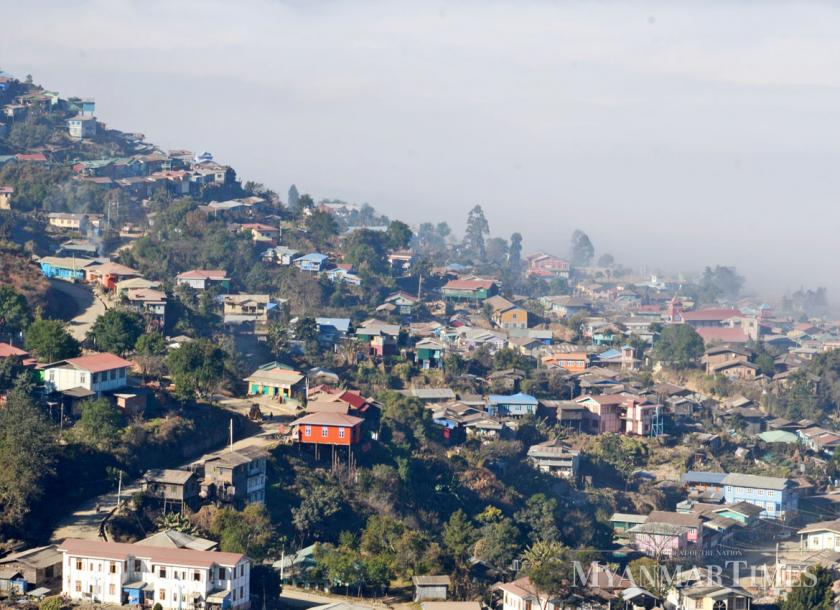
There are no plans to revise current tax relief scheme although more Foreign Direct Investments (FID) are needed for the undeveloped Regions and States (U Thant Sin Maung, Acting Director General of DICA)
Although more foreign direct investments (FDI) are needed for the undeveloped Regions and States, there are no plans to revise current tax relief scheme as yet, said U Thant Sin Maung, acting director general of the Directorate of Investment and Company Administration (DICA). U Thant Sin Maung was responding to requests for tax incentives from Chin State officials in order to attract foreign investors to the state. Recently, U Salai Lian Luai, the chief minister of Chin State, also asked the Myanmar Investment Commission to provide his state with tax incentives after the commission held forums promoting Chin and Rakhine states to foreign investors. "It is true that some regions are lacking FDI. Tax reliefs will be provided for Chin State based on the law in due course," said U Thant Sin Maung. -
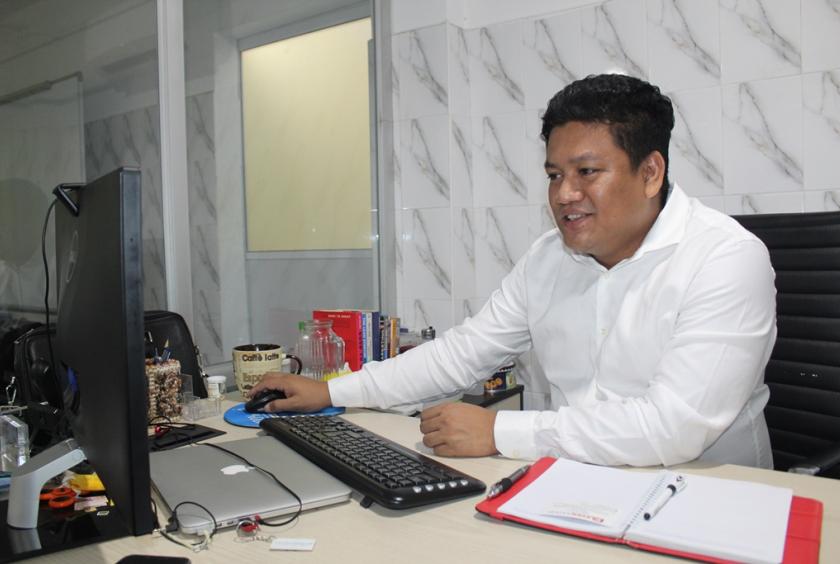
Locally owned YangonNet Technology Solutions Co.,Ltd will expand its business to empower business with one stop ICT services in Myanmar
AMID RISING demand for technology among companies to improve performance in Myanmar, locally-owned YangonNet Technology Solutions Co is set to expand its business to fill the gap through a wide range of ICT solutions and products, according to Lin Htet Aung, the firm’s founder and chief executive. In an exclusive interview, he said the firm would pitch its products to the business sector in the second half of this year. It aims to triple in size from the current staff of 10 by the end of this year. “The valuation of YangonNet is growing fast, and we are fully confident of achieving our targets, working together with many strategic partners from Hong Kong and China,” he said. Lin Htet Aung established the firm in June 2017, having worked in Singapore for more than a decade. Leveraging his experience acquired from several technology projects there, the executive aims to provide effective ICT solutions for both local and global customers seeking to transform their business with modern technology. -
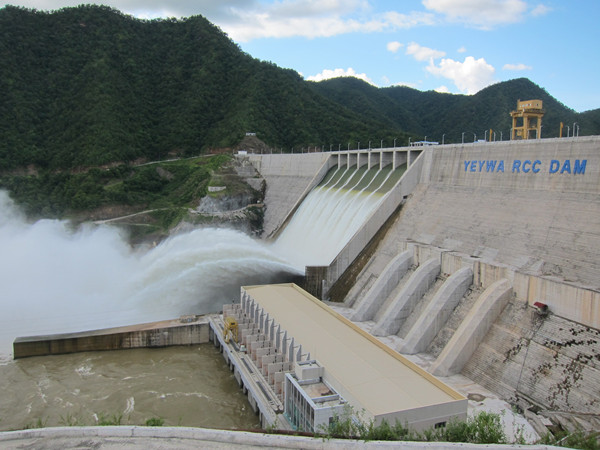
Myanmar Hydropower Developer’s Association (MHDA) will become an independent Myanmar-registered group promoting sustainable work of hydropower sector in Myanmar
The Myanmar Hydropower Developer’s Association (MHDA), led by the International Finance Corporation (IFC), has now become an independent Myanmar-registered group promoting sustainable work in the country’s hydropower sector, it announced on Wednesday. Founded in 2016 as the Hydropower Developers’ Working Group, MHDA is a platform where hydropower firms and related professionals are able to support talks, influence policies, and improve environmental and social management processes and governance. As its first initiative, the MHDA has partnered up with the Ministry of Electricity and Energy to produce standardised concessions and power purchase agreements for hydropower projects. These agreements will help regulate the rights and obligations of both developers and the government, and ensure projects will meet the accountability requirements of international lenders and comply with environmental and social standards. -
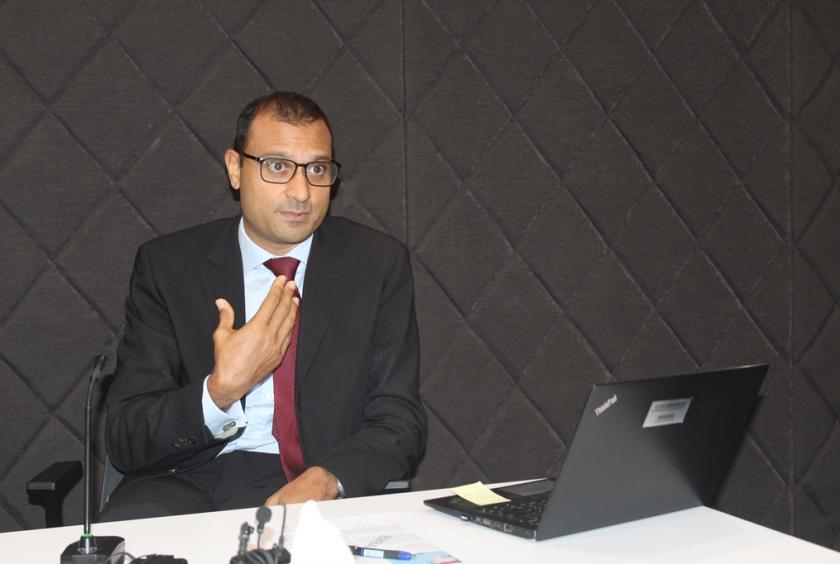
The economic outlook for Myanmar would remain favorable, similar to other smaller economies in the region (Mr. Andrew Mason, Acting Chief Economist for East Asia and the Pacific at World Bank Myanmar)
DESPITE Myanmar’s economic growth having declined to 6.2 per cent last year from 6.8 per cent in 2017, the nation remains resilient and is expected to return to growth of 6.5 per cent this year and 6.6 per cent next year, according to WB economists. Andrew Mason, World Bank’s acting chief economist for East Asia and the Pacific, told a tele-press conference on Wednesday that the economic outlook for Myanmar would remain favourable, similar to other smaller economies in the region. “Myanmar is facing some important challenges in terms of infrastructure investment, human capital and gaps in some of the basic services,” he said. “This will require more government revenues. So, raising revenue and spending it better is an important piece of the puzzle.”
เกาะติดข่าว
Copyright © 2014 Business Information Center All Rights Reserved.







